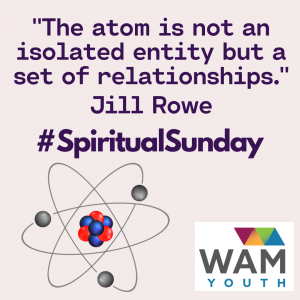
This week I’m making no apologies for lifting thoughts from the amazing Jill Rowe (Oasis Waterloo). The series of podcasts Lessons in Love is well worth a listen if you want to explore this further.
The idea that we are hardwired for relationship, designed for connection is evident in our responses to lack of relationship or connection. As Jill says “our whole wellbeing is wrapped up in our belonging to each other”.
Our common cultural greeting of “Alright?” and the easy response of “Yeah I’m alright” seems so superficial compared to the beautiful greeting used by the Zulu tribe of “Sawubona”. Sawubona means “I see you, you are important to me and I value you.” The response “Ngikhona” is “I am here”.
But how can we see people in our day to day? Jill suggests we begin by recognising that no one is a problem to be solved. We see people when we give them our time when we don’t just squeeze them into our schedules. We see people when it is so inconvenient for us.
The rise of social media in the last couple of decades has to be in part due to our in-built need to “be seen” and our lack of feeling seen in the midst of our success focused, ambition driven, competitive culture. Perhaps one of the things to celebrate in the current lockdown is that those who are now being seen in the sense of being considered important and valued in our world are those people and services that are driven by love and compassion, not self success or status and communities have rallied to ensure the vulnerable and overlooked are seen and supported. Whilst one of the things to be concerned about are those who are even less seen in the isolation we’re experiencing.
WAM exists to help all know that they are seen. That they matter and are valued. Sometimes the young people we work with are considered at best inconveniences to some and at worst major problems to others. The relationships we can provide them with are all about saying “I see you, you are important and I value you”. That lived message is transformative.
We all need to change the way we respond to each other, we are all guilty at times of not seeing others in the way they need to be seen and we need to remember that the reality is “We’re all just walking each other home” (Ram Dass)
Gemma
